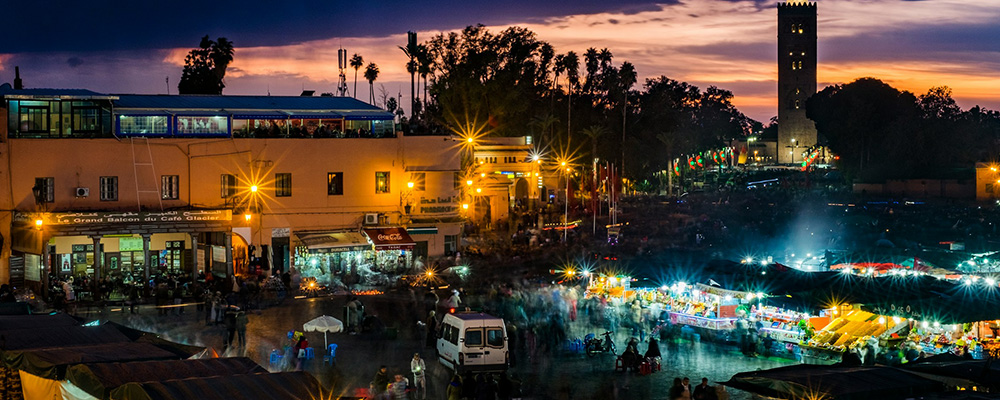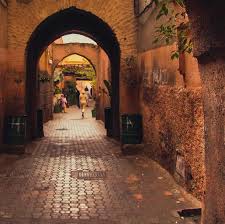
The Art of Haggling in Marrakech Souks | Local Shopper Guide
The Art of Haggling: Marrakech Souk Edition
In the heart of Marrakech’s Medina, where ancient alleys twist like the lines of a well-read story, lies the beating heart of the city—the souks. Here, the air smells of leather, cedarwood, spices, and possibility. The soundscape is alive with calls from merchants, the soft chatter of locals, and the rhythmic hum of negotiation. In this labyrinth of color and sound, one art form stands above all others: haggling. Bargaining in Marrakech is not just a commercial act; it’s a dance, a dialogue, and a centuries-old ritual that reflects Morocco’s culture, pride, and hospitality.
To truly understand Marrakech, you must learn to haggle—not just for the price, but for the experience. The souks are more than markets; they are theaters of life, and every transaction is a performance. Whether you’re buying a handcrafted lamp, a vintage rug, or a handful of saffron, you are stepping into a conversation that stretches across generations.
The Spirit of the Souk
Before you even start negotiating, it helps to understand the spirit of the souk. The word “souk” simply means market, but in Marrakech, it means much more. The Medina’s souks are divided by craft—metalwork, spices, textiles, carpets, pottery—and each has its own rhythm. In one alley, you might hear the hammering of copper; in another, the quiet hum of a loom weaving Berber fabrics. Merchants here aren’t just salespeople; they are custodians of heritage.
When you haggle, you’re not fighting for a discount—you’re participating in a cultural exchange. Moroccans respect a clever negotiator. A fair bargain is seen as a sign of intelligence, patience, and good humor. The secret is balance: be firm but polite, playful but respectful. The merchant wants to earn, but also to enjoy the game.
The First Rule: Enter with a Smile
The best tool in Marrakech is not your wallet—it’s your smile. The souks thrive on human warmth. When you greet a shopkeeper with “Salam alaikum” (peace be upon you), you are showing respect. Most locals respond with a smile and “Wa alaikum salam.” These small gestures transform the interaction. A traveler who is polite and curious will always receive better treatment than one who appears cold or impatient.
In Morocco, commerce is personal. A smile can open doors that money cannot. You’ll find yourself offered mint tea, invited to see how a lamp is made, or shown a hidden terrace where crafts are dried in the sun. All of these moments happen because of respect and friendliness.
How to Start the Negotiation
When you find something you love, resist the urge to ask the price immediately. Take a moment to admire the craftsmanship. Ask where it was made, what materials were used, and how long it took to create. This shows appreciation and gives you time to understand the item’s real value. When you finally ask, expect the first price to be high—sometimes double or triple the final amount.
If a vendor says 400 dirhams for a small bowl, you might start at 150 or 200. The negotiation then becomes a rhythm: you go up a little, he goes down a little. Keep the tone light. If the seller laughs, you’re doing it right. If the mood becomes tense, step back and smile. Often, the merchant will adjust, because haggling is meant to be friendly competition, not confrontation.
When to Walk Away
Walking away is one of the most powerful strategies. If the seller’s final price feels unfair, simply thank them and say, “Maybe later.” Nine times out of ten, you’ll hear them call you back with a better offer. Even if they don’t, walking away keeps you in control. Remember: in the souk, you never lose by leaving. There’s always another shop, another artisan, and another opportunity just around the corner.
The Language of Bargaining
A few Arabic or French words can completely change your experience. When you say “Bsh-hal?” (how much?), “Ghali bezaf” (too expensive), or “Zwin” (beautiful), you create connection. In French, “C’est trop cher” (too expensive) and “Faites-moi un bon prix” (give me a good price) are commonly used. You don’t need to be fluent—just respectful and friendly. Locals appreciate effort, and they’ll often respond with warmth and better deals.
The Psychology of the Souk
Every vendor in Marrakech knows the psychology of color, light, and emotion. The souks are designed to attract the senses—lamps gleam like stars, fabrics shimmer, spices glow in golden pyramids. Vendors will flatter your taste and sense of style, saying things like, “You have good eyes!” or “This color is perfect for you!” It’s part of the charm. Enjoy it, but stay aware. The goal is to make you feel comfortable and connected before discussing price.
The Story Behind Every Product
Haggling is not just about numbers—it’s about stories. When you buy a rug, you’re buying weeks of weaving, tradition, and artistry. When you purchase a brass lamp, you’re holding the reflection of Marrakech’s sun, shaped by the hands of generations. Ask artisans about their work. They’ll tell you how patterns carry Berber symbols of protection, fertility, and nature. Understanding these meanings transforms your purchase into something more profound than a souvenir—it becomes a piece of Marrakech’s living culture.
The Tea Ceremony: A Pause in the Dance
Sometimes, haggling pauses for tea. Moroccan mint tea—sweet, hot, and fragrant—is more than a drink; it’s an act of hospitality. When a vendor offers you tea, accept. It’s not a trick; it’s tradition. Tea means time, conversation, and trust. In that moment, you’re not just a customer—you’re a guest. Deals made after tea often come with generosity and friendship.
Common Mistakes to Avoid
Tourists often make the mistake of rushing or showing too much excitement. If you seem too eager, the price will rise. Don’t start haggling unless you’re genuinely interested in buying. Also, avoid aggressive behavior. Being loud or demanding can be seen as disrespectful. Remember: Morocco is built on courtesy and dignity.
Another mistake is assuming every shop is out to scam you. While prices are flexible, most merchants are honest. They know reputation matters, especially in a city where word spreads quickly. Guides and repeat customers often have long relationships with certain shops for this reason.
How a Guide Changes the Game
Hiring a local guide transforms the haggling experience. A guide knows which shops are reputable, where the real artisans work, and what fair prices look like. They can translate, explain, and even negotiate on your behalf. With a guide, you’re not just a tourist—you’re part of the local rhythm. They’ll help you discover places tourists rarely see: tanneries, dye houses, or family-run workshops hidden behind modest doors.
The True Meaning of a Good Deal
At the end of the day, a good deal isn’t the lowest price—it’s mutual satisfaction. If you pay a fair price and both you and the merchant smile, you’ve succeeded. You’ve participated in a ritual that has defined Marrakech for centuries. The souk is not about winning or losing—it’s about connection. Each item you take home carries not only craftsmanship but also memory, laughter, and human warmth.
Final Thoughts – The Dance of Words and Dirhams
Haggling in Marrakech is a mirror of life itself—full of color, movement, and exchange. Every conversation teaches patience and empathy. Every bargain is a bridge between worlds. The Medina, with its narrow alleys and open hearts, invites you to slow down, talk, listen, and laugh. And as the call to prayer echoes across the rooftops and the lamps begin to glow at sunset, you’ll realize that the best thing you’ve brought from the souk isn’t the object in your hand—it’s the story that comes with it.
WhatsApp Morocco +212614905398
